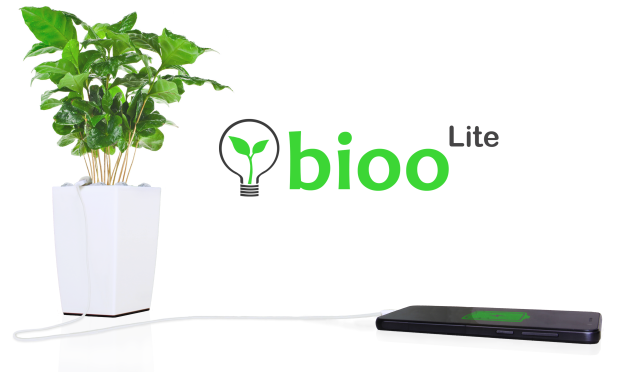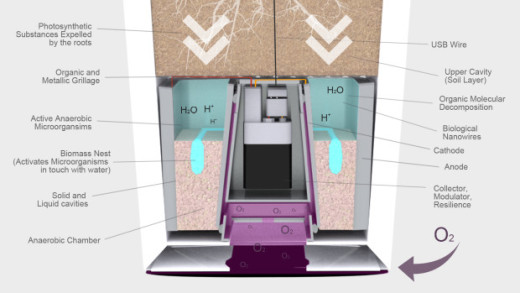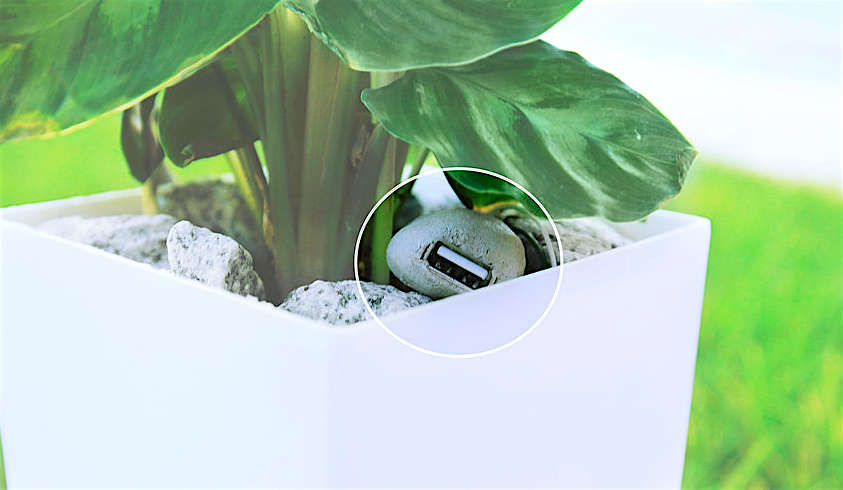Renewable Phone Charging From bioo
Nanotechnology meets mother nature as Barcelona based company Bioo hack the natural process of photosynthesis to create a clean, renewable charging alternative for smartphones.


Nanotechnology meets mother nature as Barcelona-based company bioo hack the natural process of photosynthesis to create a clean, renewable charging alternative for smartphones.
By hacking photosynthesis, Barcelona-based bioo have transformed the common houseplant into a self-perpetuating battery. Their bioo Lite plant pot is able to emit five volts, (which is roughly equivalent to the same amount of power emitted by a USB lead plugged into your laptop), and can recharge a smartphone up to three times a day, which should be enough to sate the needs of even the most inveterate social media user.
Extracting a practical amount of electrical charge from a plant will always be more complicated than plunging your USB lead directly into the soil. A small amount of compacted technology is at play. Underneath the main body of the plant are two smaller pots of bacteria that react with water. The composites generated in the soil by photosynthesis filter through a semi-permeable skin covering the bacteria pots.

The bacterium then feeds on these composites, producing electrons that are gathered by a nano-wire network. Those electrons are collected in a battery, (also at the base of the pot), which is connected to a USB cable that the user keeps on the surface of the soil.
A cursory glance at the zeitgeist by even the most casual observer would reveal that the issue of global sustainability, and by extension, finding sources of renewable energy, lies at the forefront of contemporary thinking. This is backed up my the statistic that 90% of Protein’s audience are concerned with the state of the environment.

Plants are being used for all kinds of sustainable outcomes. They’re now able to provide eco friendly funerals and offer natural commemorations. Work is also being done that could see algae derived materials replace the use of plastic bottles.



Discussion